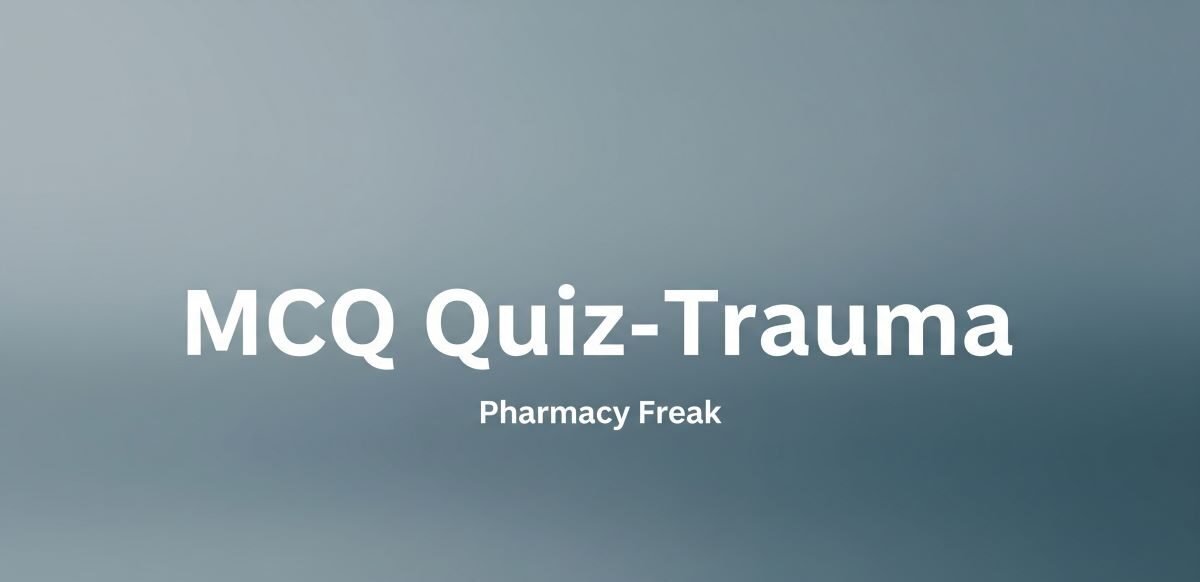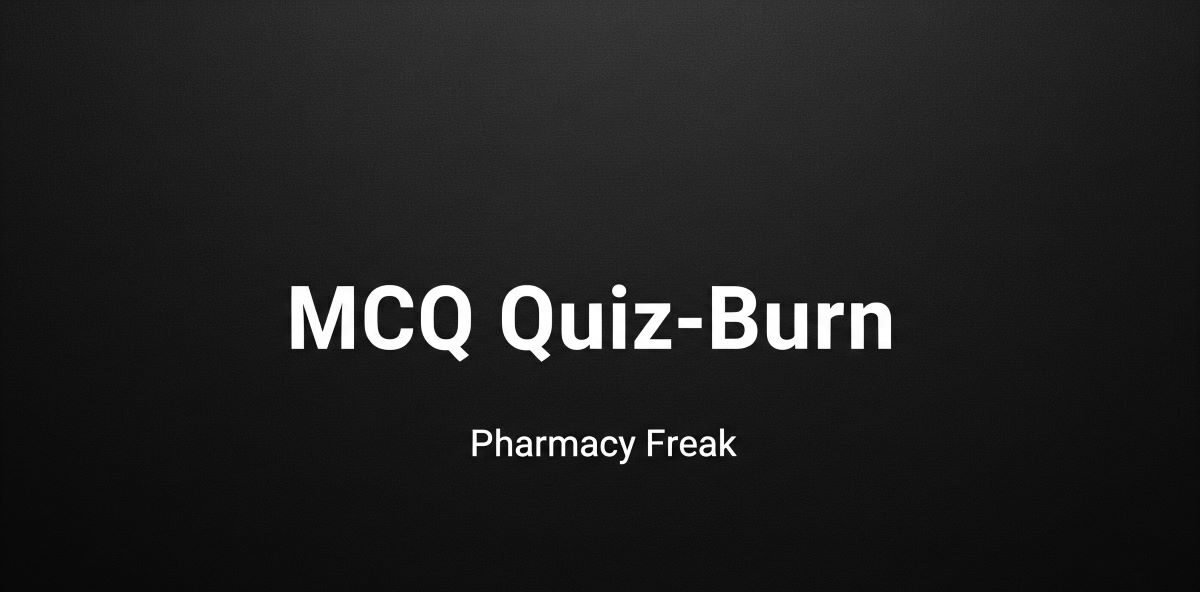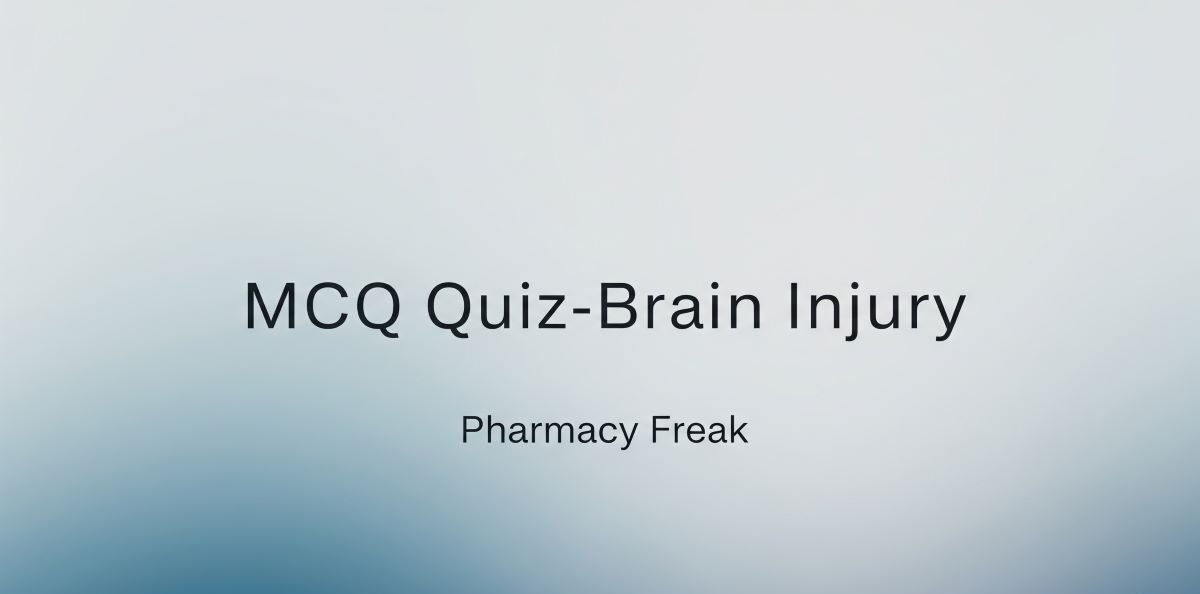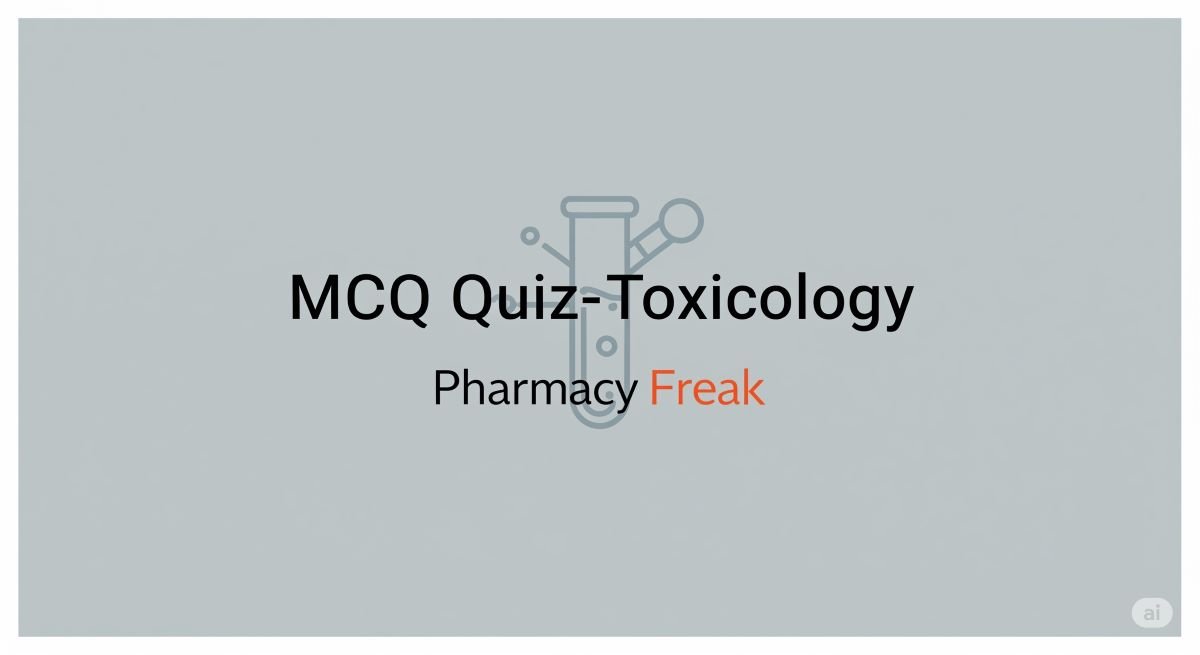
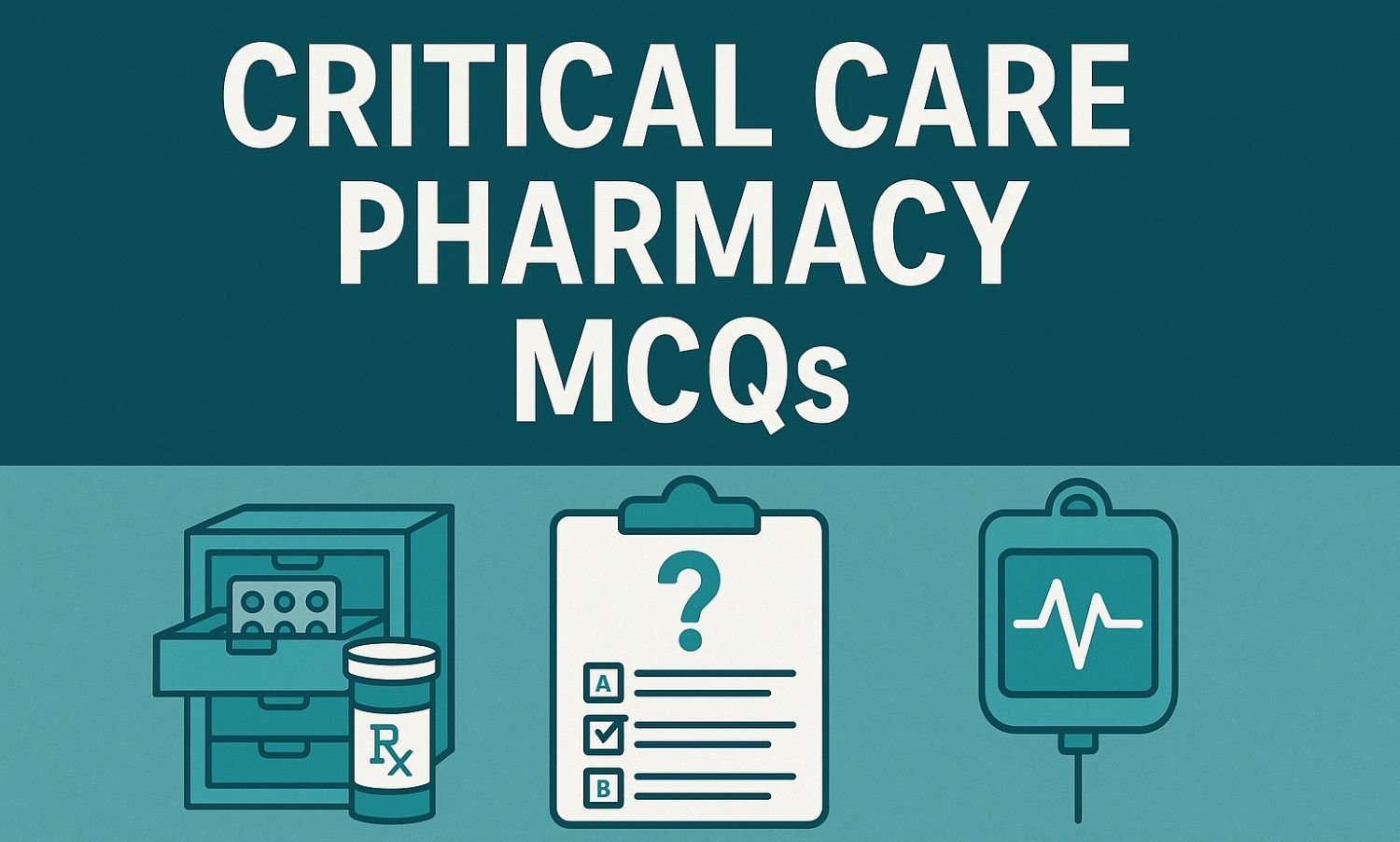
Excel at Critical Care Pharmacy MCQs
Critical care pharmacy is fast-paced, complex, and demands precise decision-making. These MCQs test your knowledge of managing life-threatening conditions, optimizing drug therapy in the ICU, and supporting patients through some of the most challenging moments of care. Mastering this area prepares you for both exams and real-world critical care practice.
What’s Covered in Critical Care Pharmacy?
This subject focuses on the safe and effective use of medications in intensive care units (ICUs) and other acute settings. It covers drug therapy for critically ill patients, pharmacokinetics under altered physiology, emergency protocols, and the pharmacist’s role in the ICU team.
What Will Critical Care Pharmacy MCQs Test?
Core Focus Areas
Hemodynamic Support:
Expect questions on vasopressors, inotropes, fluid resuscitation, and managing shock states.Infectious Diseases in the ICU:
MCQs may test antimicrobial selection, dosing in organ dysfunction, and de-escalation strategies.Sedation, Analgesia, and Delirium:
You’ll see scenarios about balancing pain control, sedation protocols, and preventing ICU delirium.Anticoagulation and Thrombosis Management:
Expect questions on DVT prophylaxis, managing bleeding risks, and reversal strategies.Ventilator-Associated Issues:
MCQs may involve optimizing therapies for ARDS, asthma, or pneumonia in mechanically ventilated patients.Pharmacokinetics in Critical Illness:
Look for questions about altered drug absorption, distribution, metabolism, and elimination in ICU patients.Emergency Response:
Expect scenarios on rapid sequence intubation, code blue participation, and ACLS medication choices.
Why These MCQs Matter
Here’s the truth: critical care pharmacy is high-stakes. The right decision can save a life; the wrong one can put patients at risk. These MCQs prepare you to act with confidence and precision in emergency and ICU settings.
Tips for Success with Critical Care Pharmacy MCQs
1. Prioritize Life-Saving Interventions:
Always choose answers that stabilize the patient quickly and safely.
2. Adjust for Organ Dysfunction:
Critically ill patients often have impaired renal or hepatic function—dose adjustments are essential.
3. Balance Efficacy and Safety:
Pick therapies that work fast while minimizing complications.
4. Know Emergency Protocols:
Be ready to recall ACLS, sepsis bundles, and ICU guidelines under pressure.
5. Think Like Part of a Team:
Many MCQs test collaboration—pick answers that emphasize communication and coordinated care.
Building Confidence in Critical Care Pharmacy
Mastering Critical Care Pharmacy MCQs builds the judgment and adaptability needed to work in fast-moving ICU and emergency settings. Every question sharpens your ability to respond to crises, optimize therapy, and make life-saving decisions.
